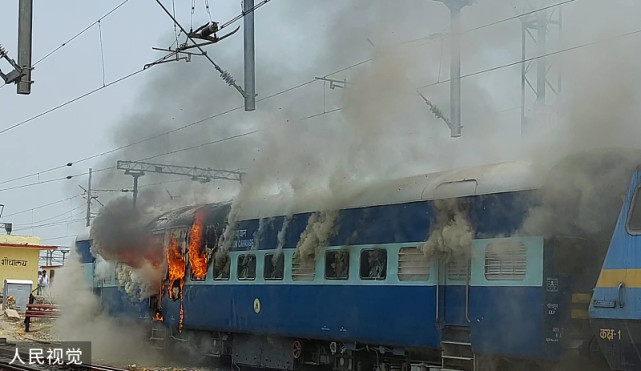From the perspective of the energy crisis, the European nuclear power goes and stay
Author:Guangming Daily Time:2022.09.06
The European energy crisis continues to ferment, and the electricity prices of various countries are refreshing the record every day. The electricity prices of two key markets in Germany and France have soared by more than 25%on August 26. In France, the basic load electricity price delivered in 2023 reached 1,130 euros/MWh, and the day increased by 25%. At the same time, similar electricity prices in Germany have also refreshed a record high, and the daily increase is as high as 33%, to 995 euros/MWh, and converted into a crude oil of $ 1,600/barrel. In a week, German futures electricity prices have risen by 70%.
Observer pointed out here that in addition to adhering to the "de -Russianization" of energy, closing the coal -fired power plant and accelerating the abandonment of nuclear energy is the main cause of current European electricity prices, and the long -term power crisis that the latter may cause is testing the wisdom of Europeans.
In the past 10 years, some European countries have adopted tough measures to close the nuclear reactor. It seems today, this may be worth reflecting. If European countries retain the share of nuclear power generation in energy balance, it can now be easier to overcome the current energy crisis. As we all know, nuclear power generation is not only "green", but also stable and cheap.
A typical example comes from Germany. Ten years ago, the country's nuclear power generation share reached 25%. Even today, 10%of electricity comes from nuclear power. However, Germany adheres to the plan to completely close all nuclear reactors at the end of 2022. It is said that Germany will close the nuclear power device in the next three to four months. In fact, if the German government is willing, it is possible to extend these nuclear reactors for a year or even 2030 because they are "advanced". However, the German "green" government would rather reserve or even restart the coal -fired power plant, and continued to hesitate to whether it extended the operating nuclear power plant.
Unlike Germany, France has not followed the "de -nuclearization" path. Due to the stable price and predictability, nuclear energy is still attractive to France. French nuclear power generation share has a high share, so that state -owned French power companies can supply power to the public at low prices, so that the soaring electricity prices have a small impact on the most vulnerable consumer group. Nevertheless, some industrial enterprises in France have suffered from electricity prices. However, the reason is not France, but the "European model". Due to the high proportion of nuclear power generation, French power companies are in fact capable of achieving the country's supervision of electricity prices, but this means that the French and European power markets are automatically separated. Under the premise of maintaining the European Unified Power Grid, French power companies are difficult to resist up to 10 times the temptation of price.
It is worth mentioning that the energy policy of Hungarians in China and Europe. Hungarian Foreign Affairs and Foreign Economic Minister Seven on August 29 warned that EU countries are moving towards "energy collapse." He said that in the absence of appropriate alternatives, the policy of rejection of Russian energy by EU countries may lead to a systemic collapse, "Russia's energy is an integral part of European energy security." Hungary not only has the European policy with the issue of cooperation with Russian oil and natural gas, but also actively promotes Hungarian and Russian nuclear energy cooperation.
The Hungarian Atomic Energy Management Agency said at the end of August that the International Atomic Energy Agency had awarded the construction permit for the Hungarian Baoksh-2 nuclear power plant project. According to the expansion of the Baoksh Nuclear Power Station signed by Hungary and Russia in 2014, the "Russian Atomic Energy" company will build two new nuclear reactors for the nuclear power plant. It is reported that the Paker-2 nuclear power plant project is expected to cost 12.5 billion euros, of which 80%will be provided by Russia with loan guarantees, and will be generated by the Internet by 2030. According to Seato, for nearly 50%of the national power production, Hungary, which is guaranteed by nuclear power generation, the completion of new projects will significantly improve the security of Hungarian energy supply.
For this construction permit, Hungary and Russia have waited for 5 years. "Russian atomic energy" has long been ready, and the problem is in Hungary. The main factor that allows Hungary and Russian nuclear energy cooperation projects to launch is undoubtedly the EU and may even have obstacles from the United States. And even if the international atomic agency releases Paker-2, it does not mean that the nuclear power plant project is ready. People in the energy community pointed out here that it is difficult for Hungary to start building nuclear motor sets in the next year and a half. On the one hand, the Hungarian party needs to communicate with the European atomic energy agency and be approved, and this may be delayed due to European geopolitical confrontation; on the other hand, because Hungary is a inland country, it will have to be imported from Russian equipment imports and experts with neighboring countries. Visit negotiations, and under the current situation, it is also difficult.
In fact, the Paker-2 nuclear power plant project is quite urgent to Hungary. According to past experience, the construction cycle of European nuclear power plants has exceeded 10 years in recent years. For example, the construction of Unit 3, the latest Finnish Olkolo Nuclear Power Station, has been delayed by 12 years. If the Paker-2 was operated in 2031 before the final period of the Paker-1 nuclear power plant, it means that Hungary will import more expensive electricity from other countries.
The main reason why Hungary chose the "Russian atomic Energy" to build a Baoksh-2 nuclear power plant is that the negative impact of Europe's long-term adherence to the "de-nuclearization" policy has gradually appeared. Facing the power crisis, European politicians and public opinion are currently preparing for the "return of nuclear energy". The European Parliament has determined that nuclear power is placed under green energy this year and supports funds for nuclear energy to find funds. However, the key to the problem is not exactly concepts and funds, but the technology and human resources that EU ensures the construction, operation and maintenance of nuclear power stations in the past 30 years have been destroyed, and it takes at least 6 years to reintegrate training. Searching all over the world, today only China, Russia and other countries have advanced nuclear energy development technology and talents. However, for geopolitical prejudice in the United States, the United States has tried to obstruct China -Russia's advanced nuclear technology to the world. Out of fear of Russia and obedience to the United States, the European Union has suppressed any moves for members of member states to cooperate with Russia, and cannot provide effective solutions for the energy crisis. This reflects the erosion of the international situation in the European Union's strategic autonomy, and this erosion has undoubtedly increased the difficulty of resolution of the energy crisis.
(Our newspaper Moscow, September 5th.
- END -
The new British Prime Minister may not be an iron lady, but she has to be a firefighting player

(Picture source: Oriental IC)Ren Qi/Wen, as early as a week or even earlier, the B...
Indian recruitment reform caused fierce protests. 369 trains were suspended.

According to the British Guardian reported on the 19th, since the Indian governmen...